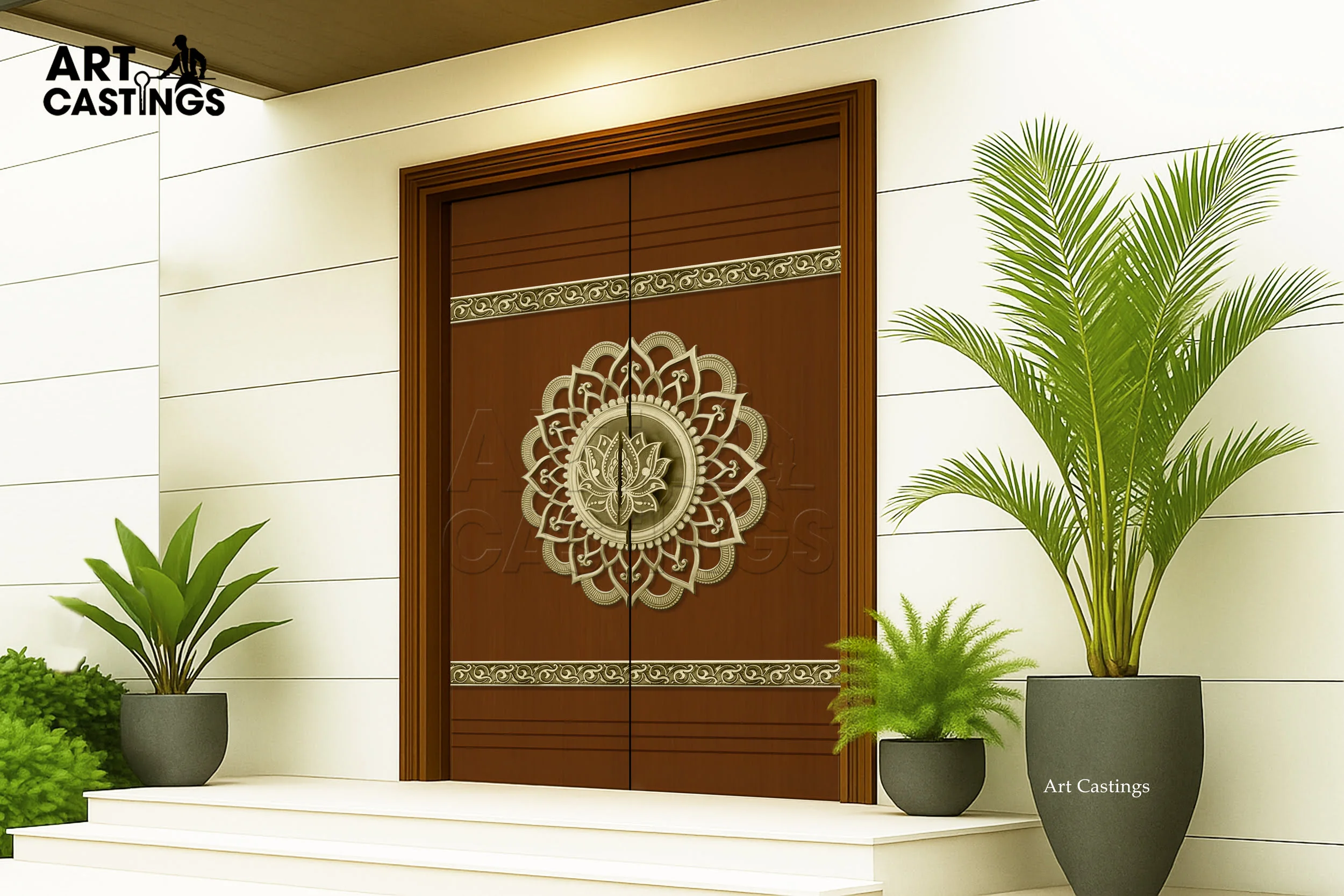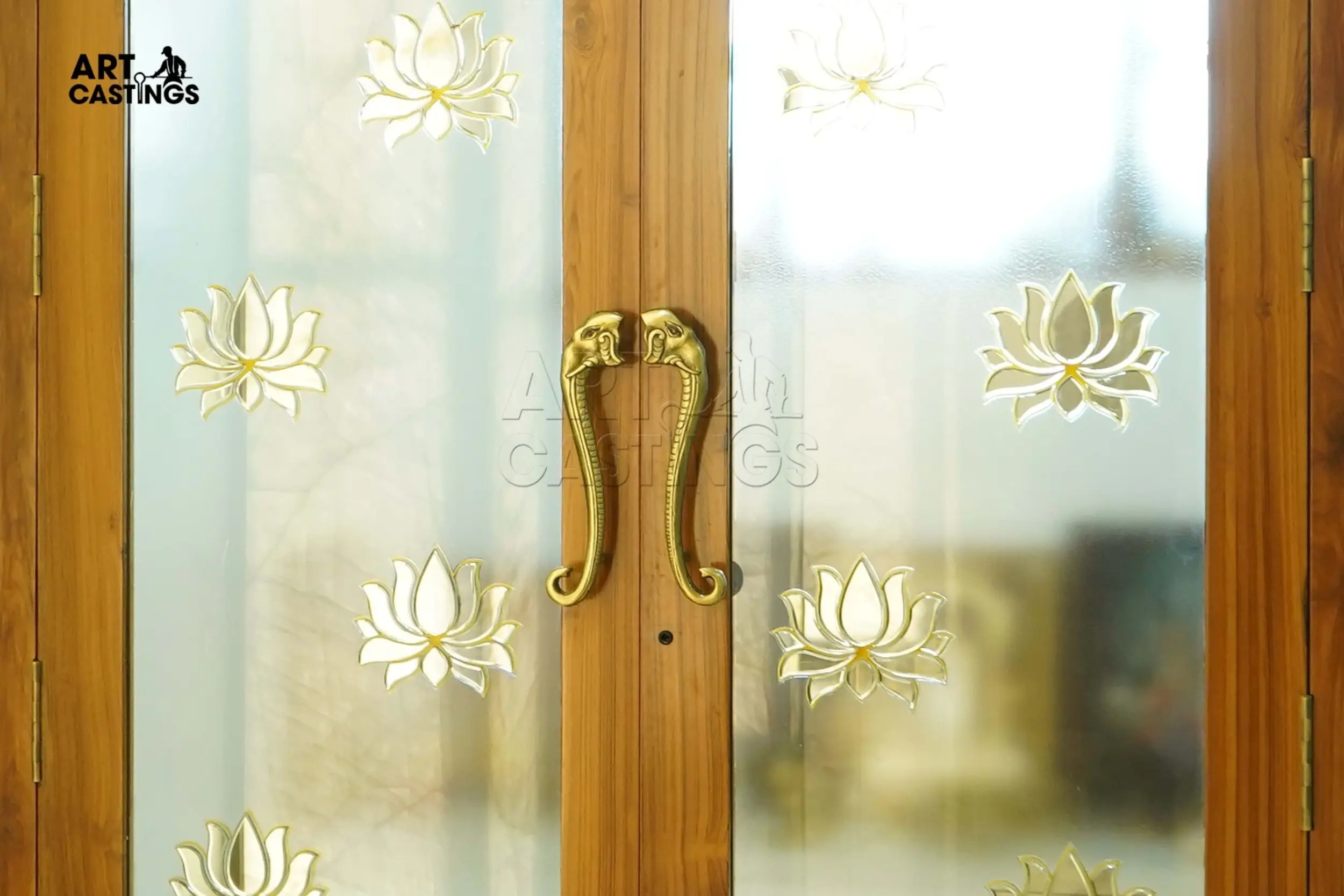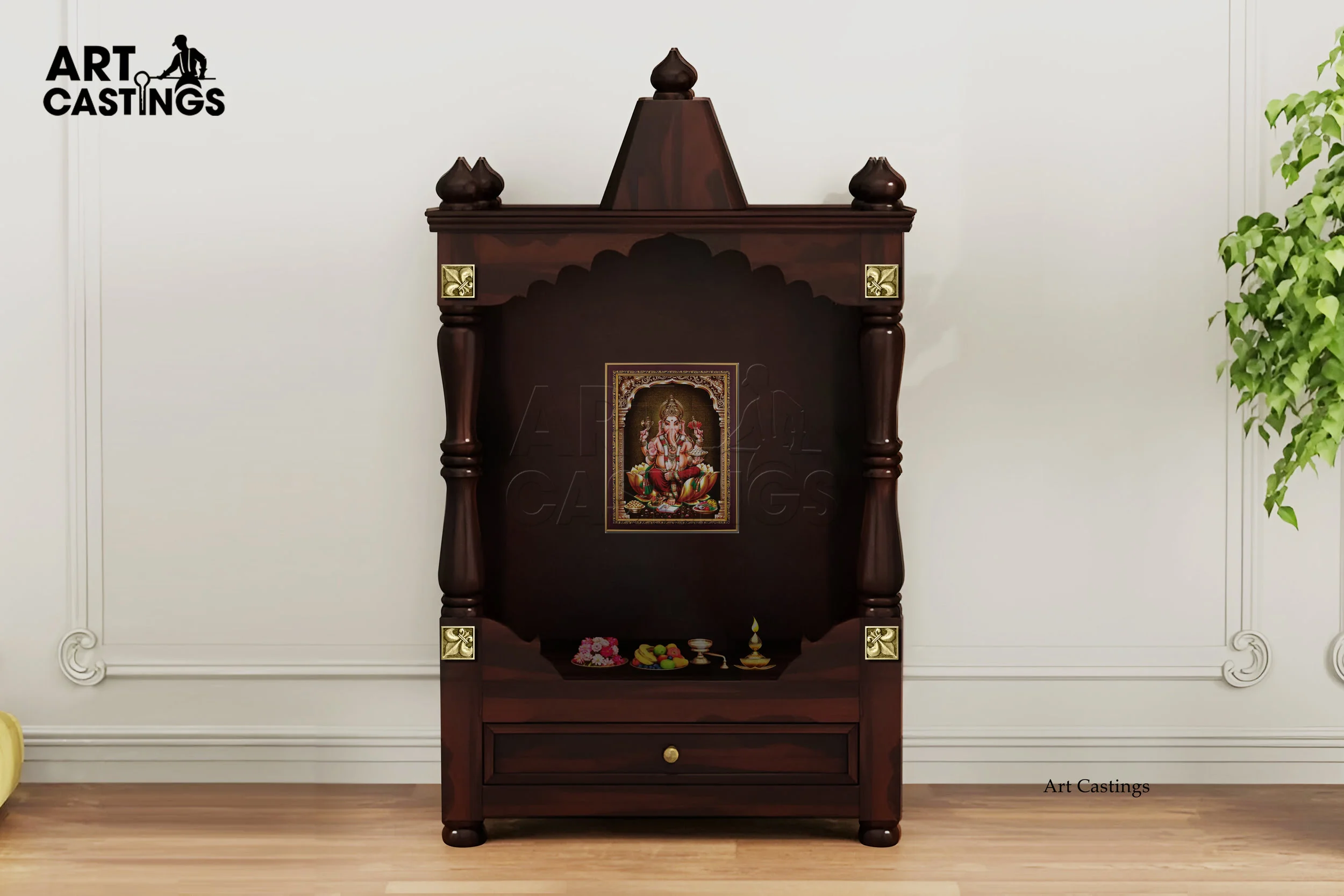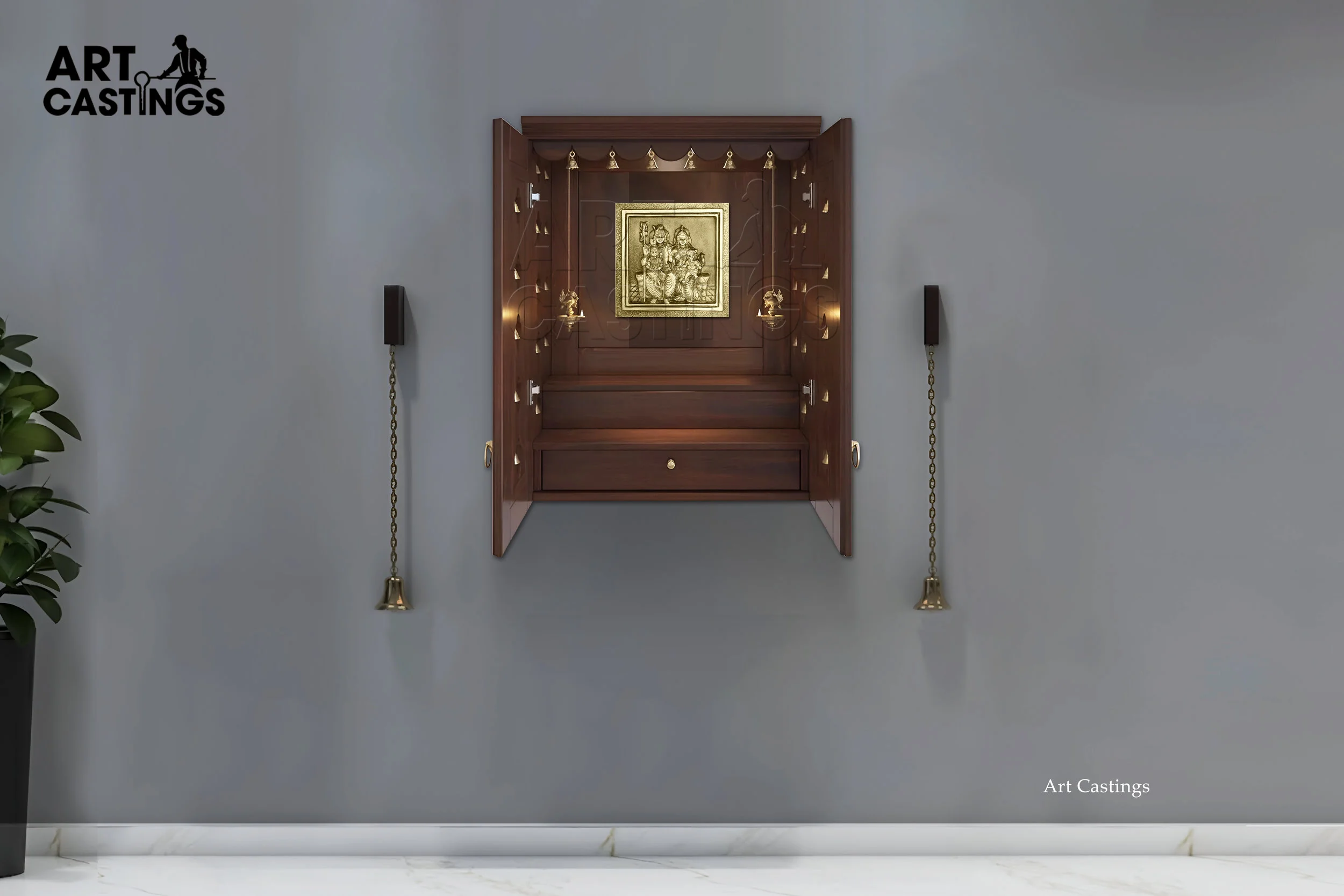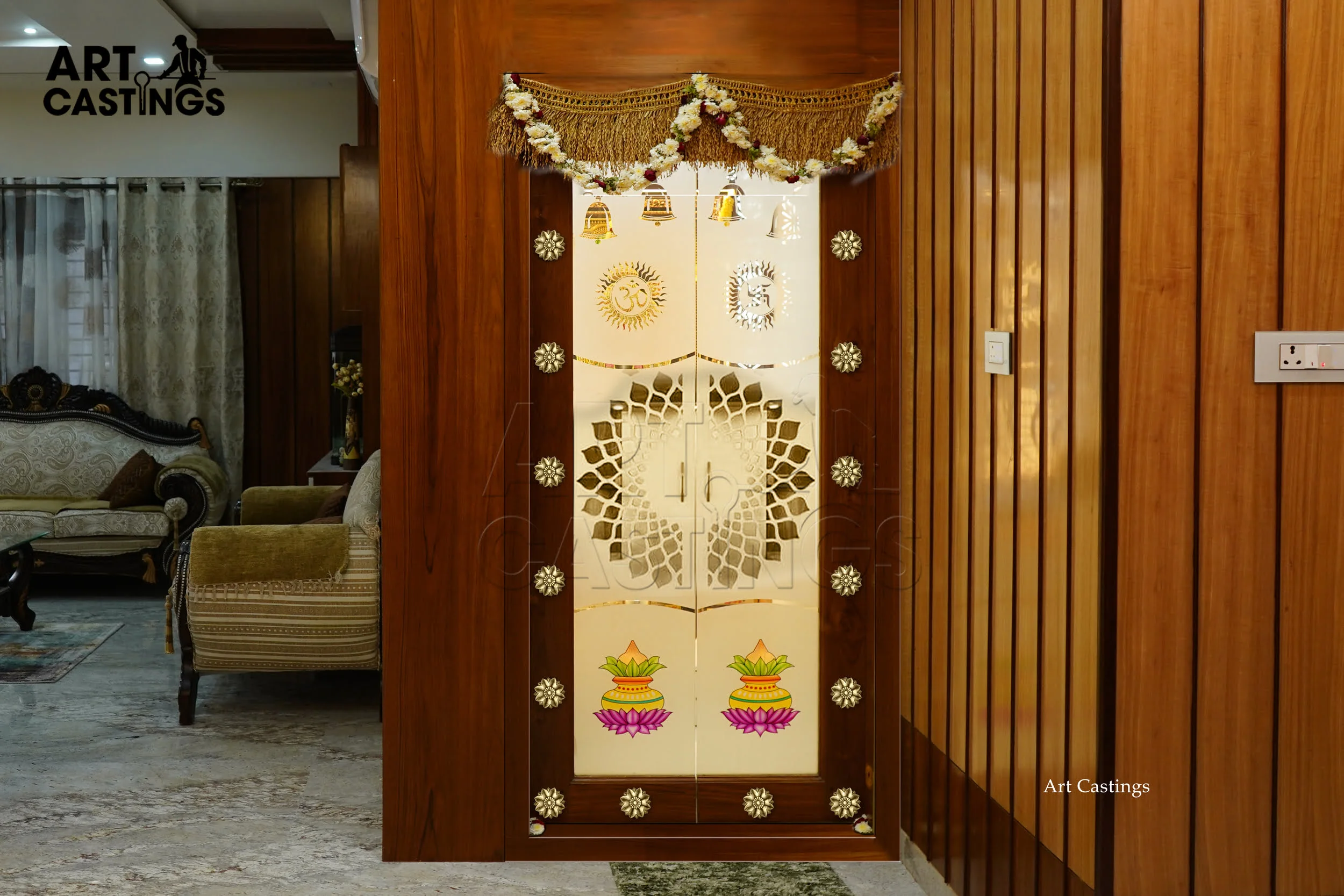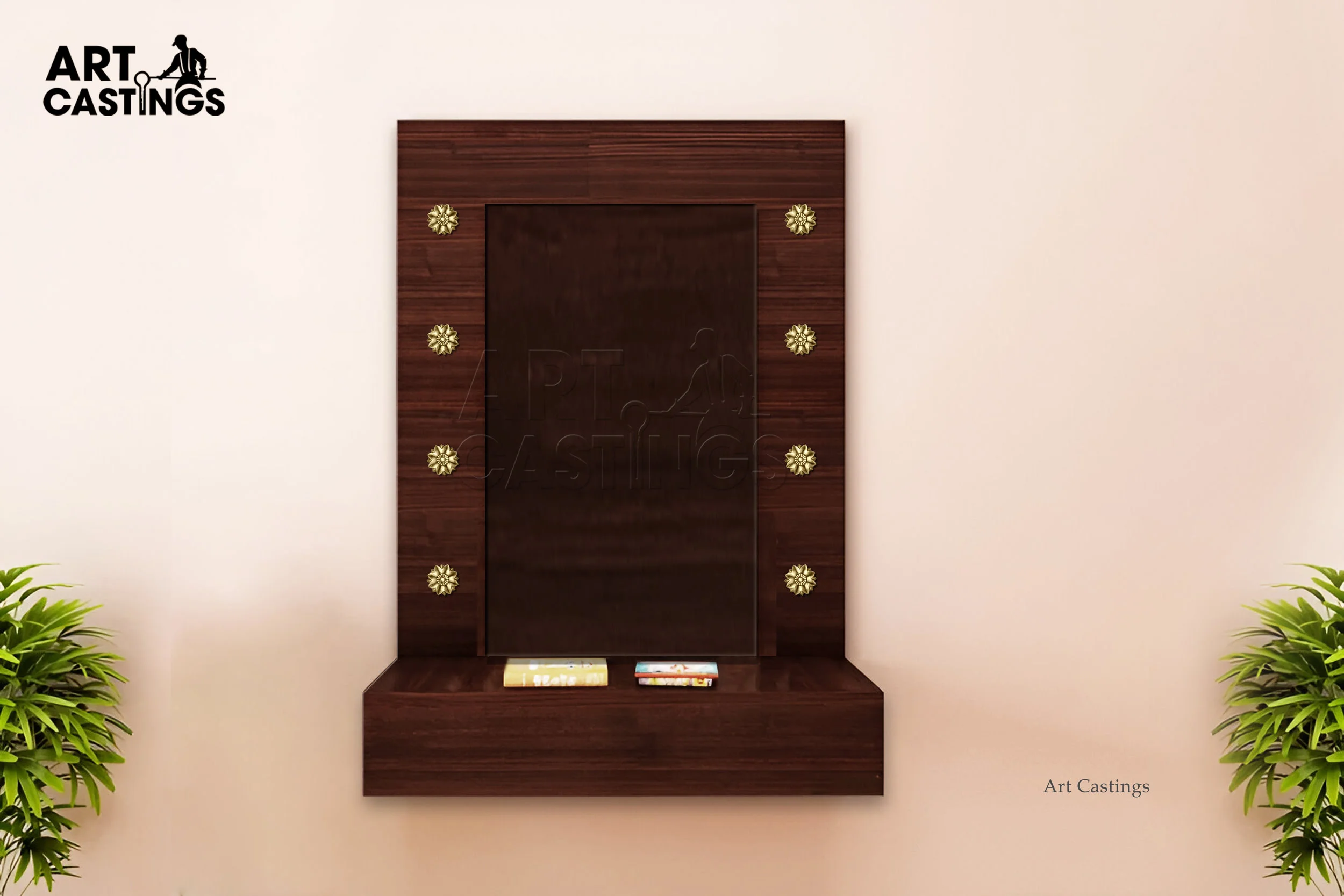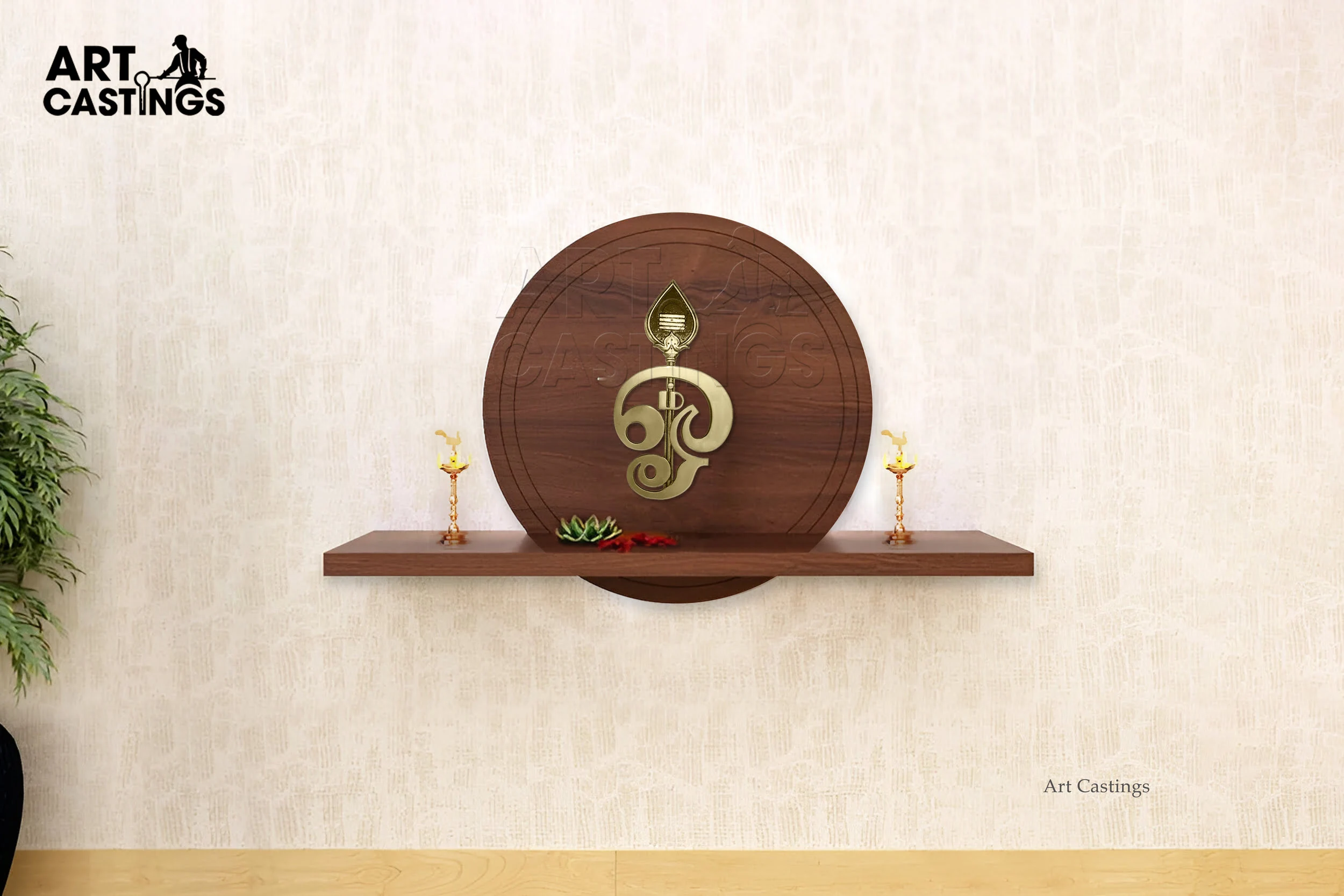At Art Castings, we believe a well-designed home begins with the right details.
Specializing in handcrafted brass interiors, we help elevate your spaces—starting right at the entrance. Our main door handles are more than functional hardware; they’re pieces of art made for homes that value tradition, beauty, and quality.
Whether you’re upgrading a luxury main door design, enhancing your pooja room interiors, or simply looking to add timeless touches to your home, we’ve got you covered. In this post, we’re sharing six of our top-selling brass handles—each with its own story and charm.
Traditional Regular Brass Handle – Where Simplicity Meets Soul
Some things never go out of style—and this handle is one of them.
Made with care and a deep respect for traditional craftsmanship, our Traditional Regular Brass Handle feels like it belongs in a home filled with warmth and history. The antique finish gives it a timeless look, while its solid 8 MM brass build ensures it’s made to last.

Sized at 50mm wide and 254mm tall, it’s a perfect match for main door handles that quietly make a statement. Whether you’re styling a classic entry or upgrading to a premium main door design, this piece blends elegance with everyday strength.
If your space leans toward traditional or luxury interiors, this handle brings the right balance of charm and purpose.
Conventional Traditional Brass Handle – Classic Style, Deeper Meaning
Some designs don’t scream for attention—they simply belong. That’s exactly what our Conventional Traditional Brass Handle offers: a sense of calm elegance that feels instantly familiar.

Handcrafted in solid brass and finished with a rich antique tone, this piece blends beautifully with both luxury main door designs and peaceful pooja room interiors. At 8MM thick, it gives a solid feel with every use—reminding you of its quality without being showy.
Its slightly larger size—57mm in width and 304mm in height—makes it a versatile choice for main door handles or pooja room door handles. Whether you’re opening your home to loved ones or entering a sacred space, this handle adds just the right amount of grace and presence.
This one’s for those who love tradition, but also want their spaces to feel thoughtfully refined.
Minimalistic Style Large Brass Handle – Subtle Sophistication for Modern Entrances
Not every grand entrance needs to be loud. Sometimes, it’s the quiet confidence of a well-made piece that makes the biggest impact.

Our Minimalistic Style Large Brass Handle is all about that clean, refined look. Designed for those who love simplicity with substance, it brings an elegant presence to any door—without overpowering it. The antique brass finish offers a soft, vintage touch, while the tall profile (914mm in height and 50mm in width) makes it ideal for sleek, luxury main door designs.
Built with an 8MM solid brass body, this handle doesn’t just look good—it feels good in the hand. Whether you’re styling a modern home or blending traditional and contemporary brass interiors, this piece is the perfect bridge between past and present.
It’s proof that even minimal design can carry deep character.
Contemporary Style Large Brass Handle – Modern Elegance Meets Timeless Craftsmanship
For those who love a sleek, polished look, our Contemporary Style Large Brass Handle is the perfect match. Handcrafted with care and finished in antique brass, it brings a refined edge to modern spaces without losing the warmth of tradition.

Measuring 50mm wide and standing tall at 914mm, this handle makes a statement on any premium main door design. Its solid 8MM thickness ensures durability, while the smooth finish adds a subtle glow that complements both bold and understated entrances.
Whether you’re designing cutting-edge luxury interiors or refreshing your home’s brass interiors, this handle strikes the ideal balance between contemporary style and classic quality.
Flower-Themed Small Brass Handle – A Delicate Touch of Divinity
Sometimes, it’s the smallest details that leave the deepest impression. Our Flower-Themed Small Brass Handle is a beautiful example of how subtle design can carry rich meaning.

Handcrafted with care and finished in antique brass, this handle adds a gentle, decorative accent—especially to pooja room door handles or even wardrobe shutters. At 101mm wide and 177mm tall, it’s compact yet full of character. The 8MM thickness offers a sturdy feel without overwhelming smaller spaces.
Perfect for enhancing pooja room interiors or adding floral charm to your home, this handle brings in a soft, spiritual vibe with every touch. It’s an ideal blend of grace, tradition, and thoughtful design.
Himalayan Flower-Themed Small Brass Handles – Inspired by Nature, Built to Last
Drawing inspiration from the serene beauty of the Himalayas, these Himalayan Flower-Themed Small Brass Handles bring a calm, nature-inspired elegance to your space.

Handcrafted from solid brass with an antique finish, they carry the richness of tradition in a compact form. With dimensions of 101mm in width and 203mm in height, and a durable 8MM thickness, these handles feel sturdy yet refined—perfect for pooja doors or as a subtle accent on main door handles.
Their floral design pairs beautifully with both spiritual and contemporary brass interiors, making them a thoughtful choice for homes that value both meaning and style. Whether you’re upgrading your pooja room interiors or enhancing a luxury main door design, these handles bring in a delicate charm rooted in heritage.
As you’ve seen, each of our brass handles is thoughtfully designed to bring out the best in your doors—whether it’s for a main entrance or a sacred space. But beyond their looks, there’s a reason why brass continues to be the preferred choice for so many homeowners today.
Brass has been a trusted material in Indian homes for generations. And while some may think it belongs only in traditional settings, the truth is quite the opposite. Brass continues to be one of the most versatile and elegant materials—effortlessly complementing both classic and contemporary interiors.
Its ability to be handcrafted into intricate shapes, paired with its warm antique finish, makes brass door handles a timeless addition to any home. Whether it’s a bold main door design or a serene pooja room interior, brass blends beauty with durability in a way few materials can match.
At Art Castings, we specialize in creating high-quality brass handles that bring heritage and style together. From luxury main door designs to spiritually inspired pooja room door handles, our collection reflects the craftsmanship we take pride in.
To explore our full range of handcrafted brass handles, visit www.artcastings.co.in or reach out to us on WhatsApp at +91 91112 42111.


